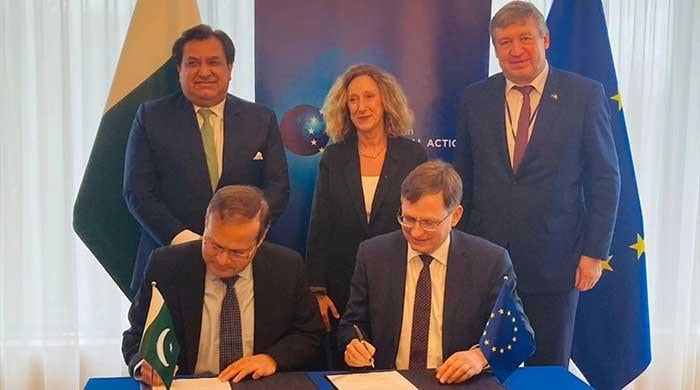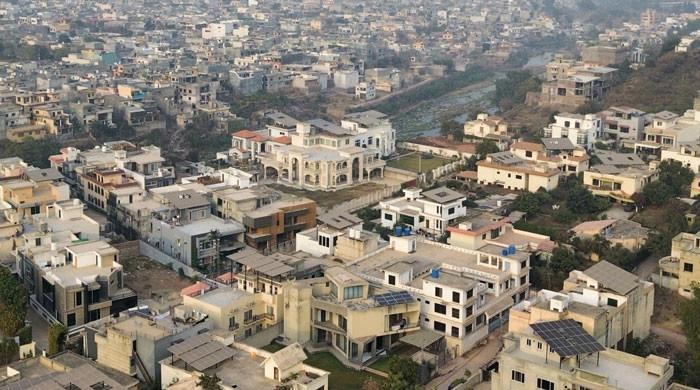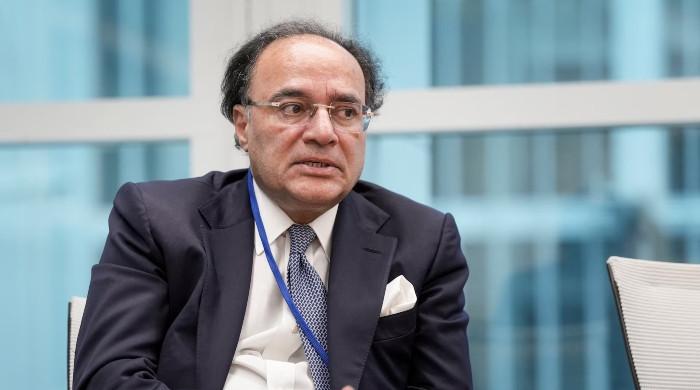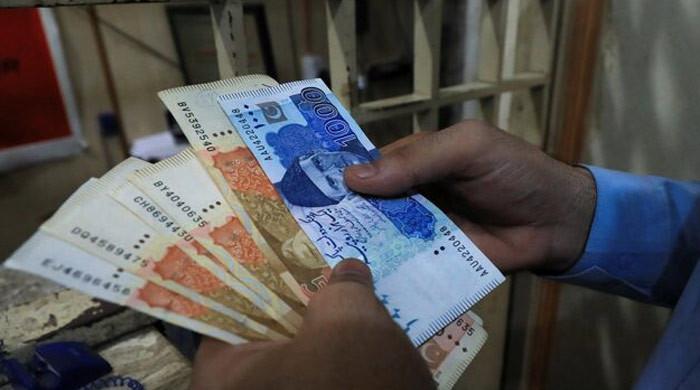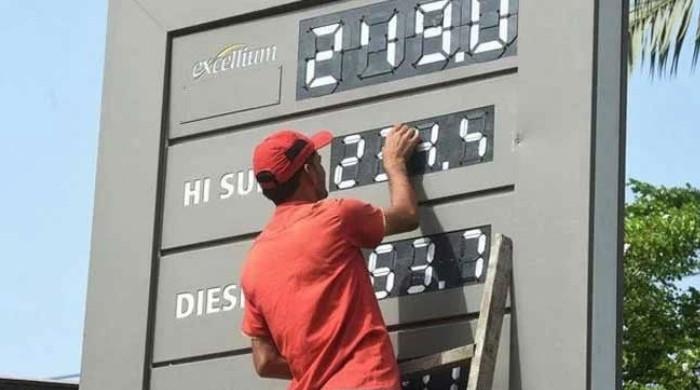Former, incumbent ministers spar over IPP deals as power bills continue to balloon
Former minister Gohar Ejaz claims independent power producers being paid Rs2 trillion annually for no reason
July 17, 2024
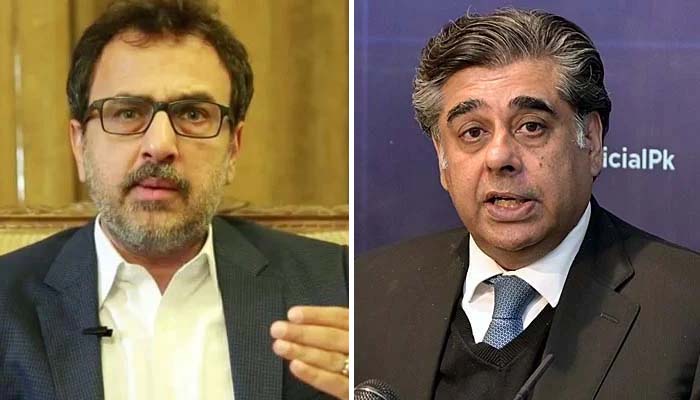
- Leghari calls Ejaz uninformed, tells him to set his stats straight.
- Says moving towards privatising loss-making power companies.
- Gohar Ejaz says IPP contracts burdened public with Rs200bn.
Federal Minister for Energy Awais Leghari has stated that the government cannot unilaterally act against independent power producers (IPPs) regarding power purchase agreements (PPAs) that are bleeding the national exchequer like there’s no tomorrow.
“The government has guaranteed the IPP contracts. [That said] we are moving towards privatising loss-making power companies and institutions,” Leghari said while returning fire after a salvo of messages on X posted by ex-caretaker minister Dr Gohar Ejaz, calling the former out for power woes.
PPAs with IPPs, made under various regimes without careful consideration of the potential consequences, are the primary cause of Pakistan’s power crises.
Owing to these IPP contracts, energy users already receive the worst form of invoices in the world, with taxes and capacity fees accounting for 70% of their bills, according to power sector analysts.
The country in the past 15 years has suffered losses of nearly Rs5,082 billion due to the governments’ failure to control the menace of circular debt, totalling an annual loss of Rs370 billion.
Since July 2018, the power purchase price has climbed by 95.82%. The spanning period of these IPPS will end around 2050.
Leghari said that they were also studying the current IPP contracts and planning to generate more electricity from cheaper sources.
The federal minister further stated, “We will let those IPPs go that do not serve our purpose.”
“The only way forward is to renegotiate. Correct. Now you are coming in line, Mr former minister. No one is cancelling contracts, but we are renegotiating the same. I have personally given instructions regarding the same,” Leghari said in one of his responses.
Ejaz, who was a federal minister for interior, commerce, industries, investment & overseas Pakistanis in the caretaker setup, lambasted the government's handling of IPPs, claiming, “They are being annually paid Rs2 trillion for no reason.”
“Why Rs2 trillion capacity payment paid to power plants last year which is costing all consumers Rs24 per unit when the actual cost should be below Rs8 per unit? Payments were made for idle capacity to IPPs; they should be paid only for power produced and delivered to National Grid,” Ejaz wrote in one of the posts of a long thread on his X handle.
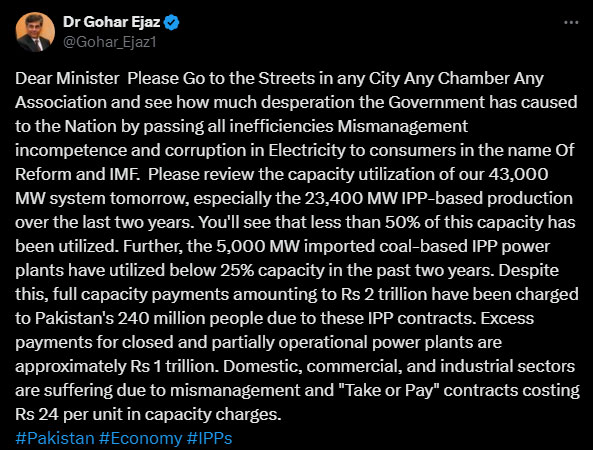
He said these contracts with IPPs were with conditions of “Take or Pay,” “which has to be cancelled.” He wrote, as per the contracts, “The capacity payment charges are to be paid even if electricity is not produced by these IPPs, which is unsustainable. These electricity tariffs of Rs60 or 21 cents do not exist anywhere in the world.”
“If electricity is bought from cheapest electricity suppliers without capacity payment and treated as merchant suppliers’ electricity prices will come below Rs30 per unit instead of Rs60 per unit plus today,” the former minister wrote.
Responding to Leghari, Ejaz claimed the IPP contracts had burdened the public with Rs200 billion worth of payments.
He accused the Pakistan Muslim League-Nawaz (PML-N) government of dubbing its incompetence, mismanagement, and corruption as reforms under International Monetary Fund (IMF) conditions.
Lamenting that disappointment prevails in every city and institution across the country, Ejaz noted that IPPs utilised less than 50% of their 23,400MW electricity generation capacity over the past two years.
He also pointed out that shut down and partially operational power plants incurred an additional cost of nearly Rs1 trillion.
Earlier, Leghari had slammed Ejaz on X, calling him an uninformed ex-minister, while reminding him of the last 35 years of consistently disappointing and flawed planning in Pakistan.

Leghari said that efforts to aggressively address discrepancies in power distribution companies (DISCOs) had been initiated for the first time.
The energy minister added that current discussions were underway to streamline cash flows with IPPs and stressed the critical need to maximise the effective use of current generation capacity.
“Thank you for guiding us now. But be positive and state facts. I am not denying the dismal state that the power sector is in, but I am extremely hopeful. My PM [Shehbaz Sharif] has resolved to correct the course and we are committed,” Leghari said in one of his responses to Ejaz on X.
According to experts, Pakistan has to make investments in renewable energy sources like hydroelectric, solar, and wind power to diversify its energy mix.
Reducing energy waste and transmission losses, governance, cost and infrastructure can also be achieved by putting energy-efficient technologies, including smart grids and metering systems, into use.
Given the alarming situation, it is imperative to review or renegotiate the IPP Power Purchase Agreements immediately to prevent Pakistan’s economy from collapsing.




